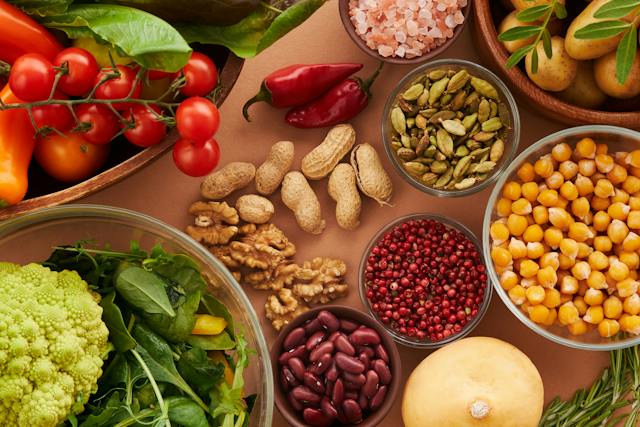
Quick Summary of Article
Importance of Reducing Carbohydrates and Sugar Intake
A ketogenic diet focuses on high fat, moderate protein, and very low carbohydrate intake, forcing the body to burn fat for fuel instead of glucose. This metabolic state, known as ketosis, can lead to rapid weight loss, particularly targeting belly fat.
Excessive consumption of refined carbohydrates and sugar can spike blood sugar levels, leading to insulin resistance and increased fat storage, especially around the abdomen. Limiting these foods can help prevent further fat accumulation and promote fat loss.
In addition to promoting weight loss, reducing carbohydrates and sugar intake can also have positive effects on overall health. Lowering the intake of these foods can help regulate blood sugar levels, reduce the risk of type 2 diabetes, and improve insulin sensitivity.
Furthermore, minimizing the consumption of refined carbohydrates and sugar can lead to better energy levels, improved mental clarity, and reduced risk of chronic diseases such as heart disease and certain types of cancer.
Overall, lowering carbohydrate and sugar intake through a ketogenic diet or other low-carb approaches can have significant benefits for both weight management and overall well-being.
Supporting Your Liver for Fat Loss
The liver plays a crucial role in metabolizing fats and removing toxins from the body. Supporting liver health is essential for efficient fat metabolism and overall well-being.
In addition to metabolizing fats and removing toxins, the liver also produces bile, which is essential for the digestion and absorption of fats. It also stores essential nutrients such as vitamins and iron, and helps regulate blood sugar levels.
Maintaining a healthy liver is vital for overall health, and adopting lifestyle habits such as a balanced diet, regular exercise, limiting alcohol consumption, and avoiding exposure to toxins can help support liver function.
Additionally, incorporating liver-supporting foods such as leafy greens, cruciferous vegetables, and antioxidant-rich fruits can contribute to a healthy liver and efficient fat metabolism.
Incorporate liver-supportive foods and supplements into your diet, such as apple cider vinegar, milk thistle, and berberine. These substances can aid in detoxification and promote optimal liver function, facilitating fat loss.
Understanding OMAD (One Meal A Day)
Intermittent fasting, particularly OMAD (One Meal A Day), has gained popularity for its effectiveness in promoting weight loss and improving metabolic health. By restricting the eating window to a single meal a day, OMAD helps control calorie intake and enhances fat burning.
OMAD has also been associated with other potential health benefits, such as improved insulin sensitivity, reduced inflammation, and enhanced cellular repair processes. Some proponents of OMAD also report experiencing increased mental clarity and focus, as well as improved energy levels throughout the day.
However, it's important to note that OMAD may not be suitable for everyone, especially those with certain medical conditions or specific dietary needs.
As with any diet or eating pattern, it's essential to consult with a healthcare professional before making significant changes to your eating habits.
Additionally, ensuring that the single meal consumed during the day provides a balance of essential nutrients is crucial for overall health and well-being.

Start gradually by extending the fasting window between dinner and the next day's meal. Experiment with different fasting schedules to find what works best for your body and lifestyle. Remember to stay hydrated and nourish your body with nutrient-dense foods during the eating window.
Staying Consistent and Aware
Consistency is key when it comes to achieving and maintaining weight loss goals. Create healthy habits, track your progress, and stay mindful of what works best for your body. Be patient and persistent, and you'll see the results you desire.
In conclusion, losing stubborn belly fat requires a combination of targeted exercises, a balanced diet, liver support, intermittent fasting, and consistency.
*** Kindly back our sponsor *** |
 Image Credit: Loretta Vance / AuthorsUSA.com
Image Credit: Loretta Vance / AuthorsUSA.com |
 HealthWellnessFitnessBeautyVideosPrivacy PolicyTerms And Conditions
HealthWellnessFitnessBeautyVideosPrivacy PolicyTerms And Conditions
